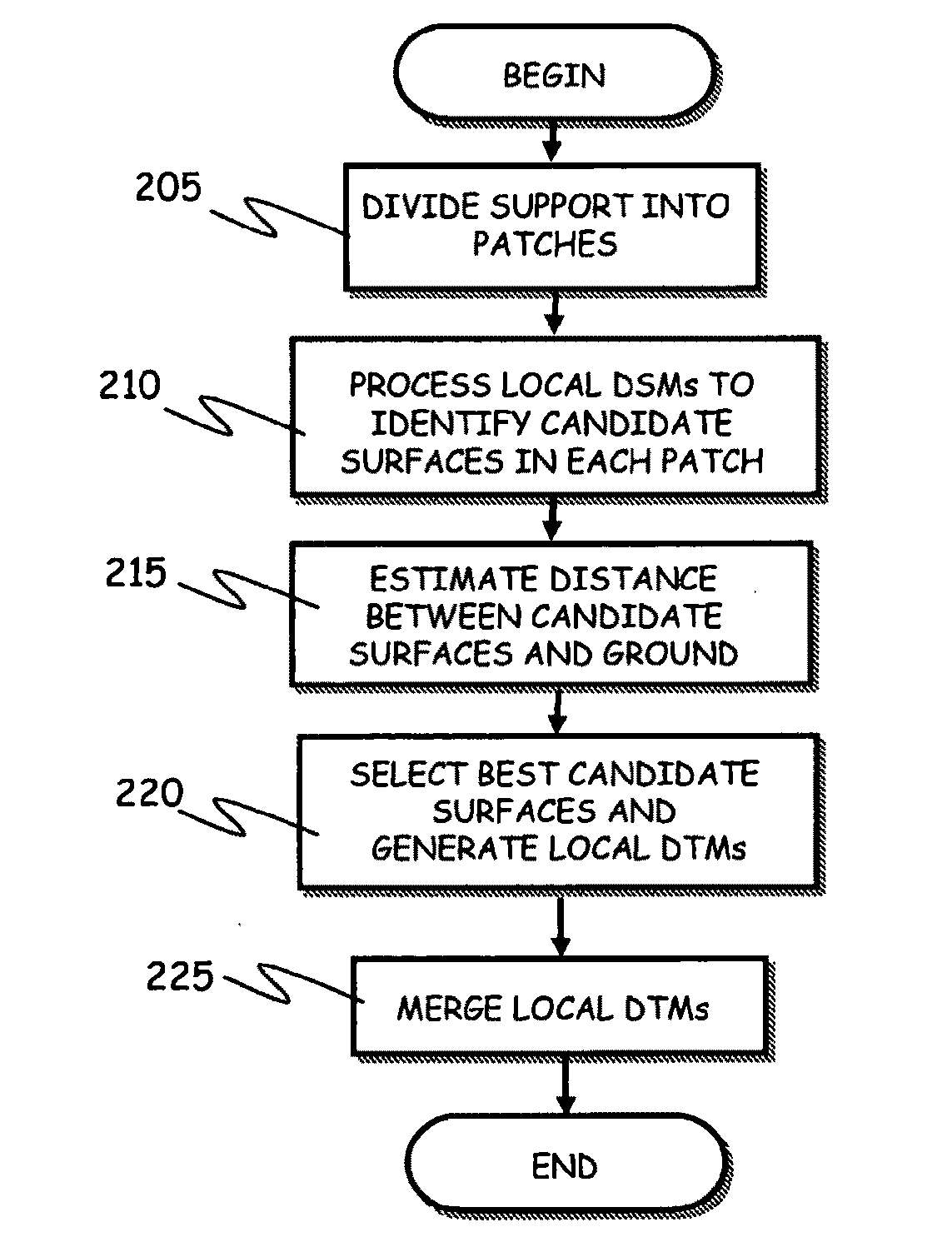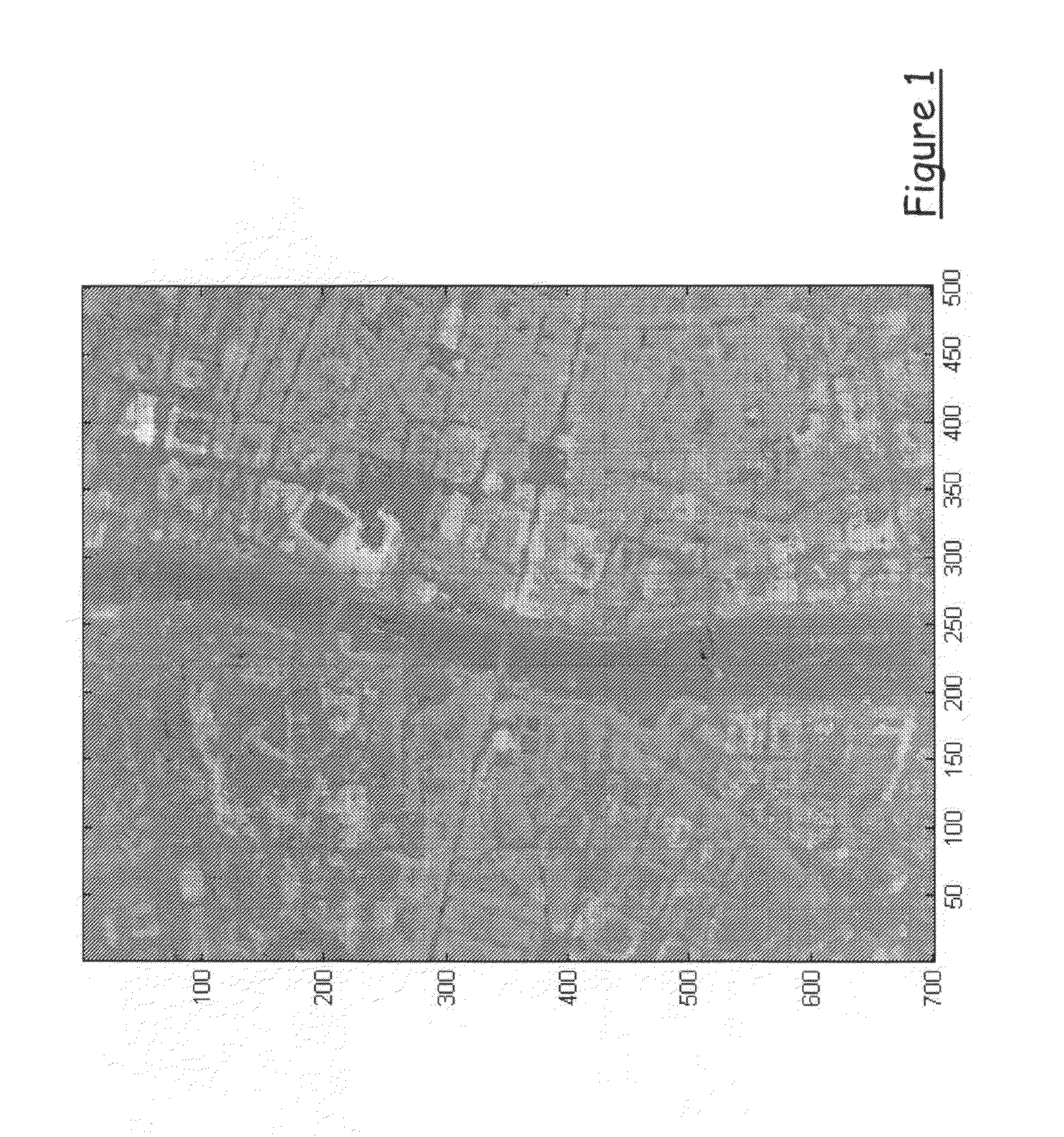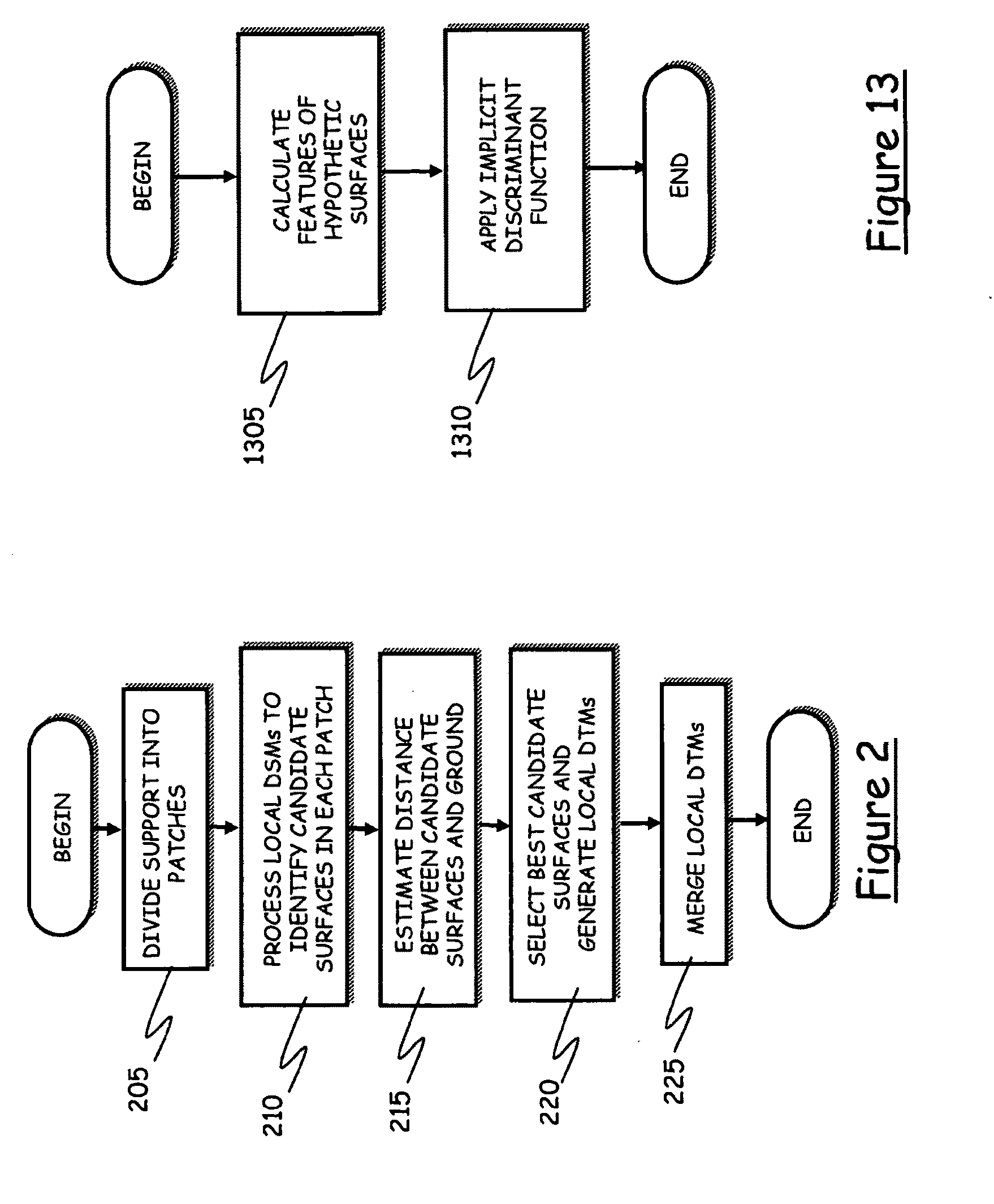Method of deriving digital terrain models from digital surface models
- Summary
- Abstract
- Description
- Claims
- Application Information
AI Technical Summary
Benefits of technology
Problems solved by technology
Method used
Image
Examples
Embodiment Construction
[0074]A DSM and a DTM are digital models of the Earth's surface that contain data describing the heights in terms of a function h on a set G of coordinates of a coordinate system in a two-dimensional space. These models are mathematically expressed as:
H={h(x,y)εR:(x,y)εG⊂R2} (1)
where (x,y) are the two coordinates of the coordinate system, representing for example the latitude and the longitude, R is the field of real numbers, and h denotes the height of the generic point of coordinates (x,y); the height h may be referred to a surface passing for the average level of the sea (this corresponds to considering the Earth as a geoid); the set G of coordinate values is called “the support” of the digital Earth's surface model.
[0075]According to an embodiment of the present invention, the two coordinates (x,y) can take discrete values, i.e. the coordinate system consists of a discrete grid. The support G may coincide with the discrete grid, or, in case of Earth's surface models defined on ...
PUM
 Login to View More
Login to View More Abstract
Description
Claims
Application Information
 Login to View More
Login to View More - R&D
- Intellectual Property
- Life Sciences
- Materials
- Tech Scout
- Unparalleled Data Quality
- Higher Quality Content
- 60% Fewer Hallucinations
Browse by: Latest US Patents, China's latest patents, Technical Efficacy Thesaurus, Application Domain, Technology Topic, Popular Technical Reports.
© 2025 PatSnap. All rights reserved.Legal|Privacy policy|Modern Slavery Act Transparency Statement|Sitemap|About US| Contact US: help@patsnap.com



